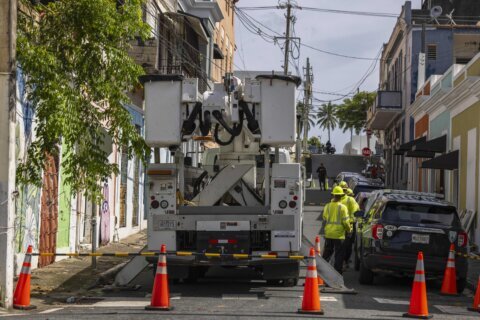The COVID-19 vaccines represent the greatest opportunity to end this terrible pandemic, but they will only work if we overcome our apprehensions about them. The reality is, vaccines do exactly what our natural immune systems do, just in a stronger and longer lasting way.
The immune system is an amazing thing, but it has a poor memory for most infections. This is why we get the same colds from the same viruses year after year. According to a study published in Nature, we know that even if a large portion of a community becomes infected with COVID-19, person-to-person spread may not slow down. It isn’t yet clear if previously having a COVID-19 infection protects a person from future infection. If it does, the immunity fades away after several months for almost everyone. Vaccines, however, boost the immune system so that immunity is much stronger and protects us for years in most cases.
[Read: Immunity-Boosting Smoothie Recipes.]
The Food and Drug Administration-authorized vaccines from Pfizer/BioNTech and Moderna are novel mRNA vaccines, which may concern some people. It’s important to realize that every cell in the human body makes mRNA every minute of every day. It’s how our cells produce vital proteins and carry out their essential functions. We would not be alive without mRNA. Almost all animal and plant-based foods contain mRNA, which is new in vaccine technology, but not unknown. The mRNA COVID-19 vaccines do not affect your DNA, the blueprints to the cells of your body, in any way. They also cannot give you a COVID-19 infection. The mRNA vaccines simply trigger your normal mRNA processing machinery to generate a protective immune response against COVID-19.
The concerns about theoretical long-term side effects of the COVID-19 vaccine are valid, but it’s important to contextualize them. The Pfizer vaccine has been studied in nearly 44,000 people, and the Moderna vaccine in 30,000 people, without any meaningful side effects or concerns for long-term issues. In comparison, most studies of the newest immunotherapy and personalized cancer drugs have less than 2,000 patients with minimal long-term safety data. Many people take supplements like cannabis oil or mushroom extracts without any evidence that these are safe long term. With vaccine studies this large and ongoing, there is no reason to scrutinize them any more than a new cancer drug or supplement.
[Read: Active vs. Passive Immunity.]
We also don’t know the long-term effects of COVID-19 on cancer patients, even for people with mild cases. A study published in JAMA shows that cancer patients are seven times more likely to contract COVID-19 compared to people without cancer. They’re also twice as likely to require hospitalization and nearly three times as likely to die of it. Even for the majority of people with mild COVID-19 infections, many still have profound fatigue, breathing difficulties or tingling in the hands and feet six to nine months after their original infection. The chance that COVID-19 infection could cause a long-term negative effect is part of why we need to consider this vaccine carefully and without undue prejudgment.
There may also be positive economic and lifestyle implications from the COVID-19 vaccine. Several apps are being developed so people can prove they were vaccinated, which could become a requirement for travel, restaurants or large events. For cancer patients, especially those at advanced stages, the ability to travel to see family and experience life events to their fullest is particularly important.
[READ: Best Immunity Boosters.]
These are unprecedented times, and it’s normal to have concerns about the vaccines. Keep an open mind and talk to your doctor to ensure you’re getting the most current, accurate information. Realize that nothing we do is perfect or 100% safe. The COVID-19 vaccines may cause discomfort at the injection site and a couple days of body aches or chills for some people. A few people will have temporary allergic reactions. The question is, are we willing to endure that to stop a virus that has caused millions of deaths worldwide and derailed our lives and economy? The answer should be a resounding yes.
More from U.S. News
Home Remedies Not to Try for COVID-19
Myths About Your Immune System
Understanding Novel mRNA Vaccines originally appeared on usnews.com







